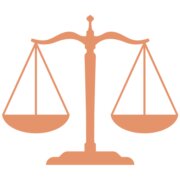Best Real Estate Contracts and Negotiations Lawyers in Richmond Hill
Share your needs with us, get contacted by law firms.
Free. Takes 2 min.
Free Guide to Hiring a Real Estate Lawyer
List of the best lawyers in Richmond Hill, Canada
About Real Estate Contracts and Negotiations
Real estate contracts and negotiations are fundamental aspects of buying, selling, or leasing property. These contracts are legally binding agreements that outline the terms of a real estate transaction, covering price, conditions, timelines, and the obligations of each party. Negotiations are the process through which buyers and sellers, or landlords and tenants, discuss and come to a mutual agreement on these terms. Getting it right is crucial, as misunderstandings or errors can have significant financial and legal consequences.
Law in Richmond Hill, Canada: A Brief Overview of Real Estate Contracts and Negotiations
Richmond Hill, Ontario, follows the laws and regulations set out by the Province of Ontario as well as applicable federal statutes. The transaction of real property is governed primarily by the Real Estate and Business Brokers Act (REBBA), the Land Registration Reform Act, and the Statute of Frauds. These laws ensure that all real estate contracts are in writing, spelled out clearly, and registered properly to protect both parties. Local bylaws may also impact zoning, land use, and development considerations.
Why You May Need a Lawyer
Legal advice is invaluable for many reasons when engaging in real estate contracts and negotiations in Richmond Hill. Here are common situations where a real estate lawyer can help:
- Drafting or Reviewing Contracts: Ensuring the contract accurately details your agreement and protects your interests.
- Negotiation Help: Advising on acceptable contract terms and supporting you during negotiations.
- Resolving Disputes: Handling conflicts between buyers, sellers, or agents, including breaches of contract.
- Title Searches: Ensuring the property title is clear of liens, easements, or other encumbrances.
- Closing the Transaction: Managing the final transfer of funds and ownership, and registering the property.
- Zoning and Land Use Issues: Addressing any municipal regulations or development restrictions.
- Mortgage and Financing Issues: Reviewing mortgage documents and ensuring financing requirements are satisfied.
Local Laws Overview
Richmond Hill residents should be aware of the following local legal considerations regarding real estate contracts and negotiations:
- Contracts Must Be in Writing: According to Ontario law, all agreements for the purchase and sale of real estate must be in writing to be enforceable.
- Standard Forms: Real estate agents in Richmond Hill often use forms provided by the Ontario Real Estate Association (OREA), but these standard forms may not always be sufficient for complex deals.
- Deposit Requirements: Earnest money deposits are commonly required and must be handled according to strict rules to protect both parties.
- Conditions of Sale: Clauses such as financing, home inspection, or sale of buyer's property are common, and must be clearly stated and adhered to.
- Disclosure Obligations: Sellers are legally required to disclose certain defects or issues with a property, especially material latent defects that are not visible or discoverable with a standard inspection.
- Title Registration: Land transfers must be registered through the Ontario Land Registry Office to finalize ownership change.
- Property Taxes and Adjustments: Tax, utility, and other adjustments are calculated on closing and included in the agreement of purchase and sale.
Frequently Asked Questions
What makes a real estate contract legally binding in Richmond Hill?
A real estate contract is legally binding if it is in writing, signed by all parties, and outlines all essential terms (such as price, completion date, and property description). Both parties must have the legal capacity to contract.
Can I use a verbal agreement to buy or sell real estate?
No. Under the Statute of Frauds, verbal agreements for the transfer of land in Ontario are not enforceable. All real estate agreements must be in writing and signed.
What is a condition in a real estate contract?
A condition is a stipulation that must be met for the contract to proceed to closing. Common conditions include obtaining financing, passing a home inspection, or the sale of an existing property.
Do I need a lawyer to buy or sell a home in Richmond Hill?
While it is not legally required to have a lawyer, it is highly recommended. Lawyers ensure contracts are enforceable, conduct title searches, facilitate closing, and resolve issues that arise.
What happens if one party backs out of a signed contract?
If a party breaches a signed contract, legal consequences can include loss of deposit, being sued for damages, or the other party seeking the court to enforce the agreement (specific performance).
What is an Agreement of Purchase and Sale (APS)?
An APS is the standard legal contract used in Ontario for buying and selling real estate. It outlines terms, conditions, closing dates, deposit amounts, and other essential elements of the deal.
Who holds the deposit in a real estate transaction?
Typically, the deposit is held in trust by the listing brokerage until the transaction closes or the contract is otherwise terminated.
Are there standard contract forms, and can I change them?
Yes, OREA standard forms are widely used. However, terms can and should be amended based on your needs. A lawyer can help you negotiate and draft custom clauses.
What is title insurance, and do I need it?
Title insurance protects against losses from title defects, fraud, or issues undiscovered during a title search. While not mandatory, it is highly advisable in Ontario real estate transactions.
When is the best time to get a lawyer involved?
Ideally, involve a lawyer before you sign any binding documents. Early legal consultation can help identify risks and ensure you are protected throughout the transaction.
Additional Resources
If you need more information or support, consider reaching out to these organizations and resources:
- Ontario Real Estate Association (OREA): Provides resources for buyers, sellers, and real estate professionals.
- Law Society of Ontario (LSO): Offers information on finding a licensed real estate lawyer in Richmond Hill.
- City of Richmond Hill - Planning & Regulatory Services: Local office for questions on land use, permits, and zoning regulations.
- Ontario Ministry of Government and Consumer Services: Information hub for land registration and property laws.
- Canadian Mortgage and Housing Corporation (CMHC): Guidance on buying, selling, and insuring real estate in Canada.
Next Steps
If you are considering a real estate transaction or facing legal questions about real estate contracts and negotiations in Richmond Hill:
- Gather Your Documents: Prepare all relevant paperwork, including current contracts, property titles, and communication records.
- Research Local Lawyers: Use the Law Society of Ontario’s directory to find an experienced real estate lawyer in your area.
- Book a Consultation: Schedule a meeting with a lawyer before signing any agreements or making binding commitments.
- List Your Questions and Concerns: Write down all your questions and points of confusion to discuss with your lawyer.
- Follow Legal Advice: Rely on your lawyer's expertise to guide you through negotiation, contract drafting, and closing the transaction.
Taking these steps will help ensure your interests are protected and your real estate transaction progresses smoothly in Richmond Hill, Canada.
Lawzana helps you find the best lawyers and law firms in Richmond Hill through a curated and pre-screened list of qualified legal professionals. Our platform offers rankings and detailed profiles of attorneys and law firms, allowing you to compare based on practice areas, including Real Estate Contracts and Negotiations, experience, and client feedback.
Each profile includes a description of the firm's areas of practice, client reviews, team members and partners, year of establishment, spoken languages, office locations, contact information, social media presence, and any published articles or resources. Most firms on our platform speak English and are experienced in both local and international legal matters.
Get a quote from top-rated law firms in Richmond Hill, Canada — quickly, securely, and without unnecessary hassle.
Disclaimer:
The information provided on this page is for general informational purposes only and does not constitute legal advice. While we strive to ensure the accuracy and relevance of the content, legal information may change over time, and interpretations of the law can vary. You should always consult with a qualified legal professional for advice specific to your situation.
We disclaim all liability for actions taken or not taken based on the content of this page. If you believe any information is incorrect or outdated, please contact us, and we will review and update it where appropriate.













